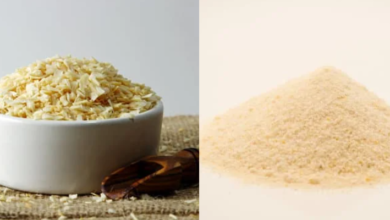Onion Powder Vs Fresh Onion: Which One Is More Versatile?
What To Know
- Onion powder is a good source of fiber and potassium, while fresh onions are a rich source of vitamin C, vitamin B6, and manganese.
- Can I use onion powder and fresh onion together in a dish.
- Yes, using both onion powder and fresh onion can enhance the flavor profile of a dish, providing a combination of concentrated and nuanced onion flavors.
In the culinary world, onions are a versatile ingredient, adding flavor and depth to countless dishes. Whether you prefer the convenience of onion powder or the fresh, vibrant taste of raw onions, understanding the differences between these two options can elevate your cooking game. This comprehensive guide will delve into the comparison of onion powder vs fresh onion, exploring their unique characteristics, culinary applications, and nutritional value.
Flavor Profile
The most striking difference between onion powder and fresh onion is their flavor intensity. Onion powder, made from dehydrated onions, packs a concentrated punch with a sharp, intense oniony flavor. Fresh onions, on the other hand, offer a more nuanced flavor profile, with varying degrees of sweetness and pungency depending on the variety.
Texture and Appearance
Onion powder is a fine, dry powder that dissolves easily in liquids. It adds a subtle texture to dishes without altering their consistency. Fresh onions, in contrast, have a crisp, slightly crunchy texture that provides a distinct bite. Their appearance varies depending on the type of onion used, from the pearly white of Vidalia onions to the deep red of Red Baron onions.
Culinary Applications
Onion powder is a pantry staple for its convenience and versatility. It can be easily added to soups, stews, sauces, and marinades, providing a consistent onion flavor without the need for chopping. Fresh onions are a more versatile ingredient, suitable for a wide range of cooking methods. They can be sautéed, roasted, grilled, or pickled, adding flavor and texture to salads, stir-fries, pizzas, and more.
Nutritional Value
Both onion powder and fresh onions offer nutritional benefits. Onion powder is a good source of fiber and potassium, while fresh onions are a rich source of vitamin C, vitamin B6, and manganese. However, the nutritional value of fresh onions is generally higher due to the presence of water and other nutrients that are lost during the dehydration process.
Convenience and Shelf Life
Onion powder is incredibly convenient, with a long shelf life of up to two years when stored in a cool, dry place. This makes it an ideal ingredient for busy cooks who want to add onion flavor without the hassle of chopping fresh onions. Fresh onions have a shorter shelf life, typically lasting for a few weeks when stored in the refrigerator.
Cost and Availability
Onion powder is generally more affordable than fresh onions, making it a cost-effective option for adding onion flavor to dishes. Fresh onions are widely available at grocery stores and farmers’ markets, while onion powder can be found in most spice aisles.
Which to Choose: Onion Powder vs Fresh Onion?
The choice between onion powder and fresh onion depends on your culinary needs and preferences. If you prioritize convenience, long shelf life, and a concentrated onion flavor, onion powder is an excellent option. For dishes where you want a more nuanced flavor profile, a crisp texture, and a higher nutritional value, fresh onions are the ideal choice.
Onion Powder Substitutes
If you don’t have onion powder on hand, you can substitute it with other ingredients that provide a similar flavor profile. Some common substitutes include:
- Fresh onion: Finely chop one small fresh onion and use in place of 1 teaspoon of onion powder.
- Onion flakes: Use 1 teaspoon of onion flakes for every 1/2 teaspoon of onion powder.
- Onion salt: Use 1/2 teaspoon of onion salt for every 1 teaspoon of onion powder.
Fresh Onion Substitutes
While fresh onions are the preferred choice for many dishes, there are times when you may need a substitute. Some common substitutes include:
- Onion powder: Use 1/4 teaspoon of onion powder for every 1 small fresh onion.
- Onion granules: Use 1/2 teaspoon of onion granules for every 1 small fresh onion.
- Shallots: Use 1/2 cup of chopped shallots for every 1 cup of chopped fresh onion.
Basics You Wanted To Know
1. Can I use onion powder and fresh onion together in a dish?
Yes, using both onion powder and fresh onion can enhance the flavor profile of a dish, providing a combination of concentrated and nuanced onion flavors.
2. How much onion powder is equivalent to a fresh onion?
As a general rule, 1 teaspoon of onion powder is equivalent to 1/4 cup of chopped fresh onion.
3. Can I substitute onion powder for fresh onion in all recipes?
While onion powder can be a convenient substitute for fresh onion in many recipes, it may not be suitable for dishes where the texture and appearance of fresh onion are important.
4. How can I store fresh onions to extend their shelf life?
Store fresh onions in a cool, dark, and well-ventilated place. Avoid storing them in plastic bags, as this can promote spoilage.
5. What are the health benefits of eating onions?
Onions are a good source of vitamins, minerals, and antioxidants, which have been linked to various health benefits, including reducing inflammation and improving heart health.
